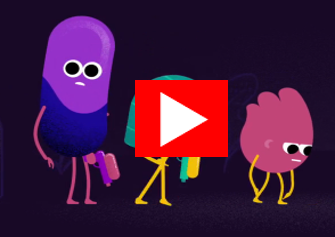Find out more about EU-funded research projects
The EU has funded a number of interpreting related research projects:
Remote interpreting and artificial intelligence
SmarTerp integrates machine assistance within the human interpreting workflow and offers an AI-powered Remote Simultaneous Interpreting (RSI) solution that helps interpreters cope with the demanding activity of simultaneous interpretation while tailoring the service to the terminology needs of the customer.
Video-Mediated Interpreting
AVIDICUS - Assessment of Video-Mediated Interpreting in the Criminal Justice System is a three stages project focused on assessing the reliability and the quality of video-mediated interpreting (VMI) for criminal proceedings in order to improve judicial cooperation across Europe. AVIDICUS also has a training section on VMI for interpreters and legal practitioners.
SHIFT - SHaping the Interpreters of the Future and of Today is an Erasmus+ 3-year project funded by the European Commission in 2015. The goal of SHIFT project is developing a comprehensive solution for training in remote interpreting in Higher Education and Lifelong Learning, through the cooperation of a European network of universities offering interpreting programmes and interpreting service providers.
Interpreting in virtual reality
IVY & EVIVA - Interpreting in Virtual Reality + Evaluating the Education of Interpreters and their Clients through Virtual Learning Activities.
The Interpreting in Virtual Reality website presents two EU-funded projects: Interpreting in Virtual Reality (IVY) and Evaluating the Education of Interpreters and their Clients through Virtual Learning Activities (EVIVA). The IVY project uses the exciting features of 3D virtual environment technology. EVIVA evaluates the educational opportunities that three types of virtual learning environments — 3D virtual worlds, videoconference- and video-based environments — offer for future interpreters and their clients.
Legal, humanitarian and public service interpreting
A series of videos on Public Service Interpreting has been produced by the Universitat Autònoma de Barcelona with the financial support of DG Interpretation of the European Commission: Public Service Interpreting and the Challenges of the New Millennium.
The project aims at promoting and improving the work and training of professional interpreters in public services in a European context. The main objectives are to develop open-access audio-visual material for trainers and trainees in PSI, as well as for a general audience; to give visibility to the work of Public Service interpreters in the EU space and the importance of PSI training programs and to introduce PSI to conference interpreting students as a means of enlarging their knowledge of interpreting modes, fields of activity and communicative contexts.
IMPLI - Improving Police and Legal Interpreting
The project, entitled ImPLI (Improving Police and Legal Interpreting), is a comparative study of interpreter-mediated questioning practices – especially by the police – in Belgium, the Czech Republic, France, Germany, Italy and Scotland. The project had a twofold purpose: to instigate or expand discussions amongst professionals, and to exchange information and best practices among ImPLI partners.
The CO-Minor-IN/QUEST project focuses on vulnerable victims, suspects and witnesses under the age of 18 and how to provide the necessary information, support and protection to this group. The project carried out valuable research and produced material to help interpreters assist their young “clients” in the best way possible.
CO-Minor-IN/QUEST I - Project Page of KU Leuven
CO-Minor-IN/QUEST II - Project Page of KU Leuven
CO-Minor-IN/QUEST - Children and Justice: Overcoming Language Barriers
CO-Minor-IN/QUEST - Recommendations
CO-Minor-IN/QUEST - Handbook for trainers
SOS-VICS («Speak Out for Support» - JUST/2011/JPEN/2912)
The "Speak Out for Support (SOS-VICS)" (JUST / 2011 / JPEN / 2912) website is a pilot project, co-funded by the European Union Criminal Justice Program and partner universities, whose objective is to improve the training of interpreters in the field of gender violence.
JUSTISIGNS (Sign Language Interpreting in the Legal Context)
The lack of, or limited status, afforded to sign languages which inhibits access to information at all stages of the legal process for Deaf people. This project focuses on identifying competencies for sign language interpreting in legal settings and providing training for both qualified and qualifying signed language interpreters in this domain.
Medical Interpreting ReACTMe - A project for Research, Action and Training in Medical Interpreting
The ReACTMe project gathers 6 institutions from Romania (UBB and UMF), Italy (UNIBO and UNINT) and Spain (USJ and UMU).
It will provide tools to train medical interpreters, trainers and higher education learners, and design a curriculum of an extracurricular module.
Check out the website and the Facebook page.
The Erasmus+ project ReTrans aims at raising awareness for interpreting in humanitarian and transborder migration contexts and at drawing attention to challenges of language mediation in refugee transit zones by providing students and teachers of higher education (HE) interpreter institutions with easy-to-use didactic materials. The project thus contributes to the diversification of educational tools in interpreter education and addresses needs and challenges experienced by individuals, interpreters, and institutions in refugee transit zones. In four work packages, project partners from four different countries located along the European migration routes came together to address the needs of those working in transit zones and to make students and teachers in HE contexts understand the challenges of not only mediating in such a context, but also of adequately managing language service provision for all parties involved. By giving voice to interpreters, institutional representatives and refugees, the ReTrans project seeks to foster exchange between actors in the field and in HE facilities.
Check out the website.



